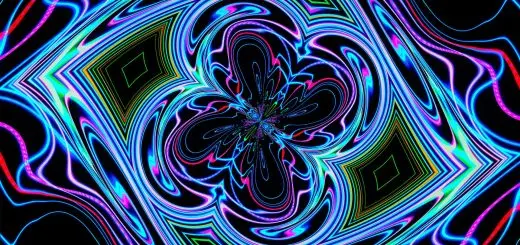Indra: The King of Gods in Hindu Mythology

Looking for more amazing products? Check out our online store and explore our collection here! Happy shopping!
Before diving in, please note: This post is for informational purposes only. If you’d like to know more about how we approach topics, feel free to check out our friendly Disclaimer Page.
Hey there, amazing readers! 
We’re committed to delivering quality posts, and your support (even just sticking around despite the ads) means everything to us. So, bear with us, and thanks for helping us keep the good vibes rolling. Now, on to the fun stuff!
TRANSLATE BUTTON AT THE END OF THE ARTICLE
Introduction to Indra in Hindu Mythology
In Hindu mythology, Indra holds the esteemed title of the King of Gods.
He is a prominent figure in the pantheon, revered for his strength, power, and leadership.
Indra is often depicted as a warrior god, wielding a thunderbolt and riding atop his celestial elephant, Airavata.
His name means "possessing drops of rain," highlighting his association with storms and precipitation.
As the ruler of Svargaloka (heaven) and the lord of the skies, Indra plays a crucial role in maintaining cosmic order and upholding dharma (righteousness).
Indra’s Role in Hindu Pantheon
Indra is a central figure in Hindu mythology, known for his role as the chief deity of the Devas, or celestial beings.
He presides over weather phenomena such as thunder, lightning, and rain, symbolizing fertility and abundance.
Indra is also the god of war and combat, leading the divine armies against the forces of darkness and chaos.
His chariot, driven by two celestial horses named Uchchaihshravas, symbolizes his swift and unstoppable nature in battle.
Despite his powerful position, Indra is not without flaws, often depicted as being arrogant and prone to jealousy.
Origins and Symbolism of Indra
The origins of Indra can be traced back to the ancient Vedic texts, where he is described as a heroic warrior who defeats demons and protects the cosmic order.
Symbolically, Indra represents the forces of light, order, and civilization, combating the forces of darkness and chaos embodied by the Asuras.
His weapon, the Vajra (thunderbolt), signifies his ability to dispel ignorance and bring clarity to the minds of devotees.
Indra’s association with rain and fertility underscores his role as a provider of sustenance and prosperity to the world.
Indra’s Appearance and Attributes
Indra is typically depicted as a handsome man with a golden complexion, adorned with regal attire and jewelry befitting a king.
He is often portrayed holding a thunderbolt in one hand and a lotus flower in the other, symbolizing his dual nature as a warrior and a benevolent deity.
Indra’s mount, the white elephant Airavata, is a symbol of strength, wisdom, and royal power.
His four arms underscore his divine nature and omnipotence, allowing him to wield multiple weapons and symbols simultaneously.
Indra’s Powers and Abilities
As the King of Gods, Indra possesses a wide array of powers and abilities that set him apart from other deities.
His control over the weather allows him to bring rain and storms to the earth, ensuring fertility and abundance for all living beings.
Indra’s mastery of warfare makes him a formidable opponent in battle, capable of defeating even the most powerful demons and Asuras.
His wisdom and intelligence enable him to navigate complex situations and make sound decisions for the benefit of the cosmos.
Stories and Legends About Indra
Numerous stories and legends in Hindu mythology revolve around Indra and his exploits.
One of the most famous tales involves his victory over the demon Vritra, who had imprisoned the waters and caused a drought on earth.
With the help of the sage Dadhichi’s sacrificial bones, Indra created a powerful weapon to slay Vritra and release the waters, restoring balance to the world.
Another popular legend recounts Indra’s rivalry with the sage Durvasa, who cursed him to lose his kingdom and glory.
Through penance and humility, Indra was able to regain his position and redeem himself.
Indra’s Relationships with Other Deities
Indra’s relationships with other deities in the Hindu pantheon are complex and varied.
As the ruler of the Devas, he enjoys a position of authority and respect among his divine peers.
Indra’s wife, Shachi, is the goddess of beauty and prosperity, symbolizing his status as a king and provider.
Despite his power and influence, Indra often finds himself embroiled in conflicts with other gods and beings, leading to both alliances and rivalries that shape the course of mythological narratives.
Indra’s Temples and Worship
Throughout India, there are temples dedicated to Indra where devotees can offer prayers and seek his blessings.
The most famous of these is the Indreshwar Temple in Uttarakhand, believed to be the abode of Lord Indra.
Rituals and ceremonies are performed to honor Indra and invoke his protection and guidance.
Offerings of flowers, fruits, and incense are made to appease the god and show devotion.
Indra’s worship is particularly significant during the monsoon season when his role as the bringer of rain is most pronounced.
Cultural Significance of Indra
Indra holds a significant place in Hindu culture and tradition, representing the ideals of kingship, valor, and righteousness.
His stories and attributes have inspired generations of artists, poets, and storytellers, shaping the narrative of Hindu mythology.
Indra’s association with rain and fertility underscores the importance of agriculture and abundance in Indian society.
The concept of dharma, or cosmic order, is exemplified through Indra’s role as the upholder of righteousness and justice in the world.
Comparisons with Indra in Other Mythologies
Indra’s character and attributes bear similarities to other gods in various mythologies around the world.
In Greek mythology, Zeus, the king of the gods, shares common traits with Indra as a powerful ruler of the heavens.
Both deities are associated with thunder and lightning, symbolizing their authority and power over the natural elements.
Similarly, Thor in Norse mythology and Tlaloc in Aztec mythology exhibit parallels to Indra as warrior gods who control weather phenomena and protect their respective realms.
Modern Interpretations of Indra
In modern times, Indra continues to be a source of inspiration for artists, writers, and scholars exploring themes of mythology and religion.
His character has been reimagined in contemporary literature, films, and comic books, drawing on his rich legacy in Hindu tradition.
Indra’s symbolism as a warrior and protector resonates with individuals seeking strength and courage in the face of adversity.
His stories serve as moral lessons and allegories for navigating the complexities of life and upholding values of honor and integrity.
Conclusion: Indra’s Legacy in Hindu Tradition
Indra’s legacy in Hindu tradition is one of power, leadership, and divine authority.
As the King of Gods, he represents the pinnacle of celestial hierarchy and exemplifies the virtues of valor and righteousness.
Indra’s stories and attributes continue to captivate audiences worldwide, offering insights into the nature of cosmic order and the eternal struggle between good and evil.
Through his temples, worship, and cultural significance, Indra remains a revered figure in Hindu mythology, embodying the ideals of kingship, protection, and prosperity for all who seek his blessings.

The Enlightenment Journey is a remarkable collection of writings authored by a distinguished group of experts in the fields of spirituality, new age, and esoteric knowledge.
This anthology features a diverse assembly of well-experienced authors who bring their profound insights and credible perspectives to the forefront.
Each contributor possesses a wealth of knowledge and wisdom, making them authorities in their respective domains.
Together, they offer readers a transformative journey into the realms of spiritual growth, self-discovery, and esoteric enlightenment.
The Enlightenment Journey is a testament to the collective expertise of these luminaries, providing readers with a rich tapestry of ideas and information to illuminate their spiritual path.
Our Diverse Expertise
While our primary focus is on spirituality and esotericism, we are equally passionate about exploring a wide range of other topics and niches 

To ensure we provide the most accurate and valuable insights, we collaborate with trusted experts in their respective domains 
Our blog originally focused on spirituality and metaphysics, but we’ve since expanded to cover a wide range of niches. Don’t worry—we continue to publish a lot of articles on spirituality! Frequently visit our blog to explore our diverse content and stay tuned for more insightful reads.
Hey there, amazing reader! 
Check out our store here and take a peek at some of our featured products below! Thanks for being awesome!











